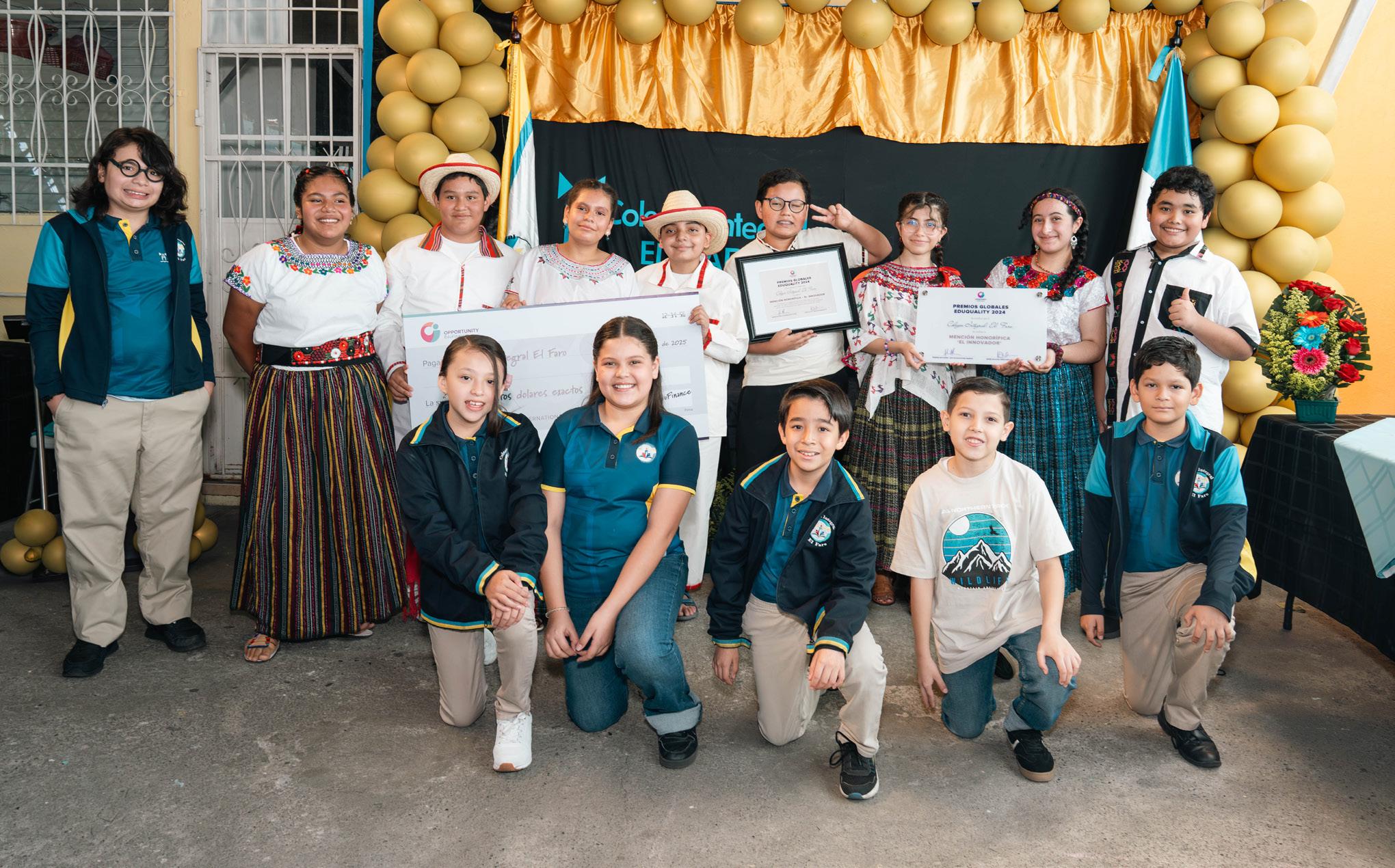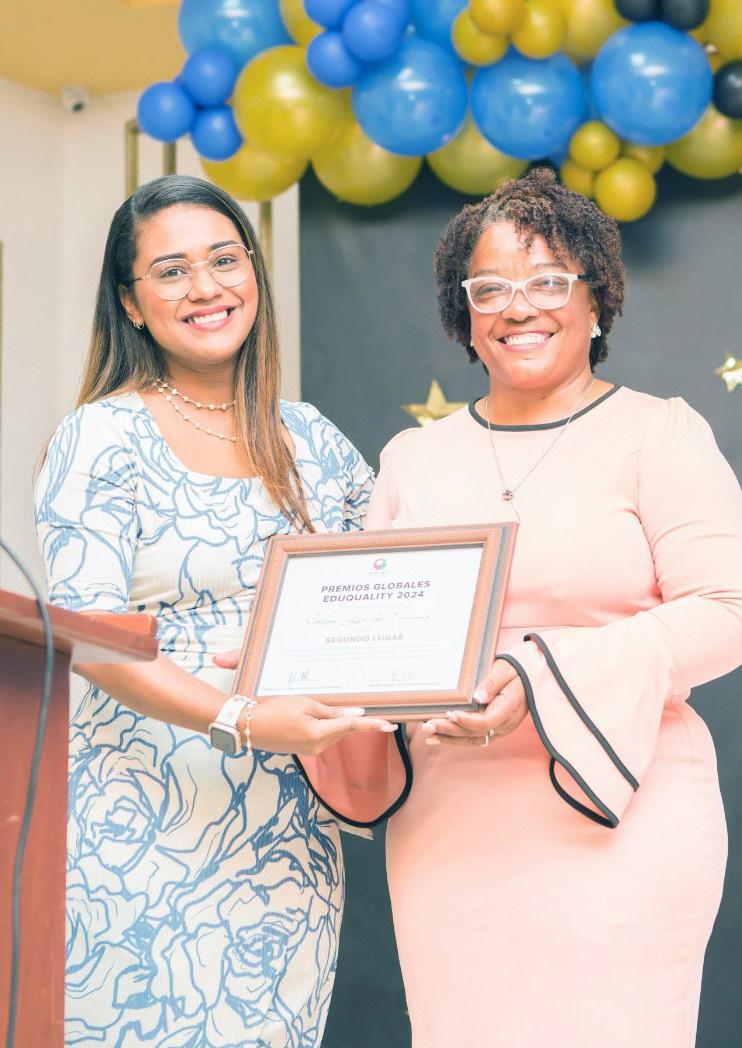

The EduQuality Awards Report
Idamerly Adames, Senior Education Specialist; Aleyda Torres, Principal, Colegio Luz del Porvenir, Dominican Republic. Photo by: Alcala Guilamo
The EduQuality Awards Report
Purpose
The Opportunity International Global EduQuality Awards program aims to recognize schools that are deeply committed to advancing highquality education. These awards use an inclusive framework, regardless of partner school location, available resources, or school size. They focus on identifying the most proactive, innovative, and dedicated schools that drive positive changes in the quality of education they provide.
The awards program aims to recognize a center of excellence within Opportunity EduFinance partner schools. This distinguished center embodies various core qualities, such as those detailed in the box on the right.
What we do
Opportunity EduFinance aims to improve the quality of children’s education and cultivate a conducive learning environment by providing a comprehensive three-year school development initiative known as the ‘EduQuality Program’ to local affordable non-state schools.
NECESSARY SCHOOL CORE QUALITIES FOR AWARDS CONISDERATION:
Passion and commitment to overcoming barriers to high-quality education.
Active, engaged teaching staff that participate in creating solutions to challenges within the school.
Leadership that is ‘switched on’ and actively engaged in supporting the school’s growth.
Willingness to collaborate with other schools in their cluster, neighborhood and/ or region
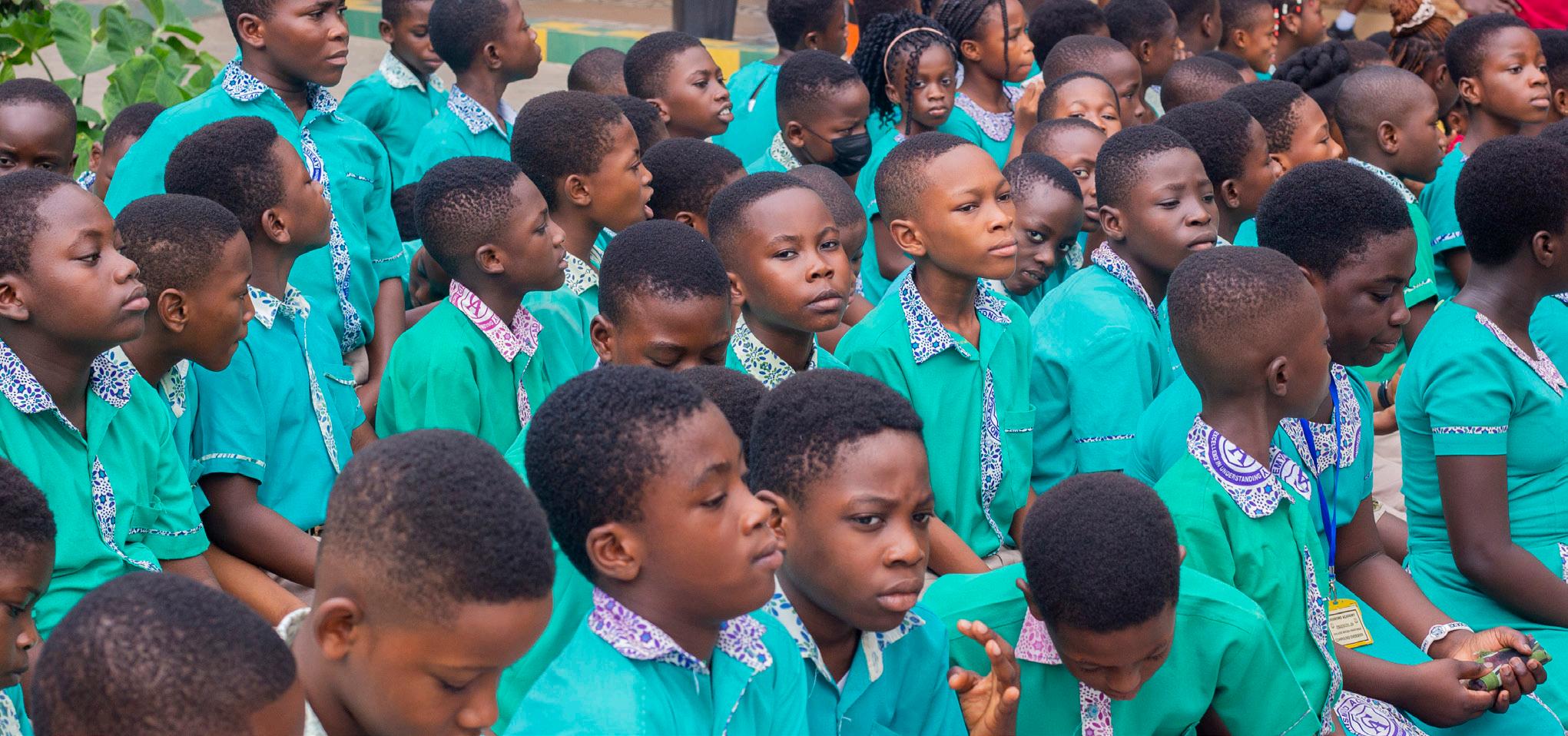
Crismond Academy, Ghana
Pathways to Excellence
Guided by our experienced Education Specialists, the EduQuality program offers various sessions to promote school development using “Pathways to Excellence”, a guide that offers any school, no matter what level they are in, to identify their strengths and improvement areas and will set step by step their pathway to excellence throughout their continuous journey.
This comprehensive Pathways to Excellence programme is detailed on the right.
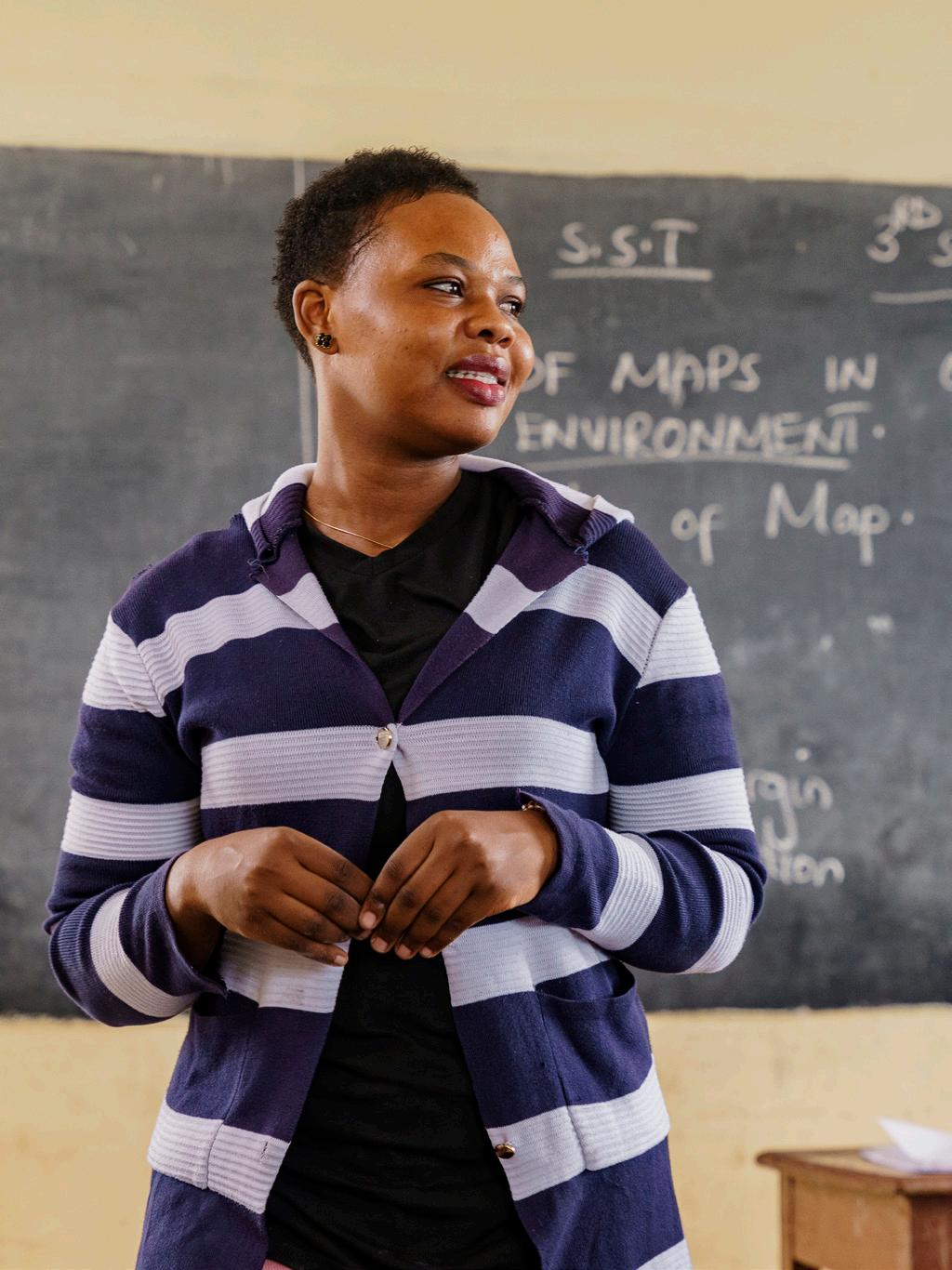
1
2
School Development Plan
Education Specialists support schools to establish a school self-assessment to diagnose the quality of education at their school using measurable indicators and then each school writes a School Development Plan to improve priority areas.
School Leader
Professional Development
For school leaders (principals, owners) with focus on school management skills, best practices. The program is developed with other peers within school clusters, enhancing leadership skills and self-sustained schools that contribute to their communities.
Teacher Mentor
Professional Development
For selected teacher mentors within each participating school, focusing on teaching and learning, classroom management, literacy, while offering skills to coach other teachers within their own schools.
The Global EduQuality Awards
The Opportunity International Global EduQuality Awards (EdQ Awards) program aims to recognize schools that are most dedicated to advancing highquality education. Schools are selected regardless of location, available resources, or size. The EdQAwards focus on identifying the most active, innovative, and committed schools in enhancing the quality of education.
The awards program aims to identify a centre of excellence among Opportunity International partner schools. A centre of excellence embodies several core qualities, including:
u Intentional Leadership: Demonstrates consistent and purposeful leadership in driving the school’s development and improvement, ensuring sustainability and quality education for learners
u Active engagement: Actively participates in solving school challenges, creatively rebuilding schools and communities, and mobilizing learners to return to school
u Passionate and creative teachers: employes teaching strategies and models that enhance student learning, with teachers who are dedicated and innovative
u Collaborative spirit: willingly collaborates with other schools in their cluster, neigborhood, and/ or region, utilizing the School Development Plan to devise solutions for their schools

Eligibility for Awards
NOMINATION CRITERIA
To be eligible for the awards, participating schools met the following minimum standards:
u Submission of School Development Plan for the previous year, with evident progress resulting from participation and implementation of all EdQ activities
u Completion at least 1 full program year.
u Had not previously received an EdQ Award.
u The school maintained a strong relationship with a financial institution, ensuring ongoing financial support and stability for its operations
u Minimum 50 pupils enrolled at the time of application
u Certified to operate by the necessary government authorities (school license or registration).
u Served pre-primary, primary, or secondary school children.
u 100% attendance at SLPD training in past 12 months
u 80% attendance at TMPD training in the past 12 months.
u Submitted a Pathways to Excellence School Self-Assessment for the previous and current academic year

Application Process & Winner Selection
PARTICIPATING SCHOOLS
70 nominated schools
42 applications entered
PARTICIPATING COUNTRIES
Africa
Democratic Republic of Congo, Ghana, Kenya, Nigeria, Rwanda, Tanzania, Uganda, Zambia
Latin America & The Caribbean
Dominican Republic, Guatemala
DEADLINE FOR NOMINATIONS
16 August 2024
APPLICATIONS OPEN UNTIL
2 September 2024 20 September 2024
APPLICATION DEADLINE

EdQ Awards Selection Process
To be eligible for the awards, participating schools met the following minimum standards:
A total of 92 schools were pre-selected based on minimum eligibility criteria provided by the Data Team.
From the pre-selected list, Education Specialists nominated 70 schools for consideration.
SUBMISSION
All 70 nominated schools completed and submitted their applications through their respective Education Specialists.
PRE-SCREENING AND SHORTLIST
The Project Management Team reviewed all applications, selecting those that clearly articulated the school’s challenges and improvements, and provided supporting evidence. 42 applicants were shortlisted.
5. TRANSLATION AND EVALUATION BY JUDGES
The 42 shortlisted applications were translated into English and forwarded to a panel of judges. Each judge scored the applications using a standardized scoring rubric.
6. SCHOOL VISITS FROM M&E TEAM
The 20 highest-scoring applications were forwarded to the Monitoring & Evaluation (M&E) team. The team conducted site visits and assessed each school using the SDP (School Development Planning) tool.
7. FINAL SCORING – EDQ AWARDS
Final scores for the EdQ Awards were calculated using a weighted approach:
• 50% from the average judges’ scores (Q1–Q14)
• 50% from the SDP assessment scores
8. SCORING – HONORARY MENTIONS
The scoring was distributed as follows:
• 50% based on individual responses to each honorary question
• 25% from the general application scores (Q1–Q14)
• 25% from the SDP assessment
Final winners were announced based on the combined scoring results.
Ceremonies were held to recognize and celebrate the achievements of the winning schools.
Award Prizes
The EduQualilty Global Awards rewards a first, second and third prize in all schools have completed at least a full year in our 3-year Program. We are proud to recognize the 2024 EduQuality global winners:
★ FIRST PRIZE (USD 3,000) ★
School
Colegio Mano Amiga “Hermano Pedro”
Country
Guatemala
Education Specialist Edlin Ramos 1
School
Colegio Luz del Porvenir
Country
Dominican Republic
Senior Education Specialist Idamerly Adames 2 ★THIRD PRIZE (USD 1,000) ★
School
Crismond Academy
Country
Ghana
Senior Education Specialist Araba Empeh 3
*All winners received an award certificate, a wall plaque, and local press coverage.

Honorary Mentions
To promote regional participation, this year, we expanded the awards to recognize more schools that are making significant impacts in their communities and the lives of the people they serve, in three distinctive categories:
u Change Maker in Education Recognizing schools dedicated to driving positive transformations that empower individuals, strengthen communities and build a more equitable and prosperous society through education.
u Community Leader Honoring schools that play a key role in mobilizing, organizing, and advocating for the improvement of educational opportunities and outcomes within a specific community or locality
u The Innovator in Education Celebrating schools that introduce new ideas, methods, technologies, or practices that lead to positive changes in teaching, learning, administration, or policy.
We are proud to announce the following regional 2024 honorary mentions, with prize money of USD 500 per school:
Africa
CHANGE MAKER IN EDUCATION
School
Embu Kawa Academy
Country
Kenya
Education Specialist
Miriam Maina
Latin America & the Caribbean
CHANGE MAKER IN EDUCATION
School
Centro Educativo Las Fresitas
Country
Dominican Republic
Education Specialist
Jasmín Guzmán THE COMMUNITY LEADER
School
Tujisaidie Community Center
Country
Kenya
Education Specialist
Miriam Maina THE INNOVATOR IN EDUCATION
School
Luis Morales THE INNOVATOR IN EDUCATION
School
Meta Meta Roses Academy
Country
Kenya
Education Specialist
Miriam Maina
*All winners received an award certificate, a wall plaque, and local press coverage.
Colegio Integral El Faro
Country
Guatemala
Education Specialist
Mano Amiga “Hermano Pedro” School Guatemala
Main Focus Area:
PARENT & COMMUNITY INVOLVEMENT
At Colegio Mano Amiga “Hermano Pedro”, educators identified a need to improve how they communicated students’ areas for growth to parents. Previously, feedback was often delivered in a direct manner that unintentionally caused discomfort or concern. In response, the school implemented a more thoughtful and respectful approach to parent communication, ensuring that discussions about student development are framed constructively and with empathy.
With support of Pathways to Excellence and the EduQuality framework, the school adopted a standardized feedback process. This includes a structured document that guides staff in delivering observations in a way that is both professional and encouraging. As a result, parents now receive feedback that is not only well-received but also appreciated as a valuable tool to support their children’s learning and potential. The school also developed and promoted a behavior policy rooted in compassion and respect. This policy reinforces the belief that teaching must be grounded in love and explicitly prohibits the use of punitive or physical discipline.
Additionally, by clearly communicating learning objectives to families, the school has fostered
TOTAL
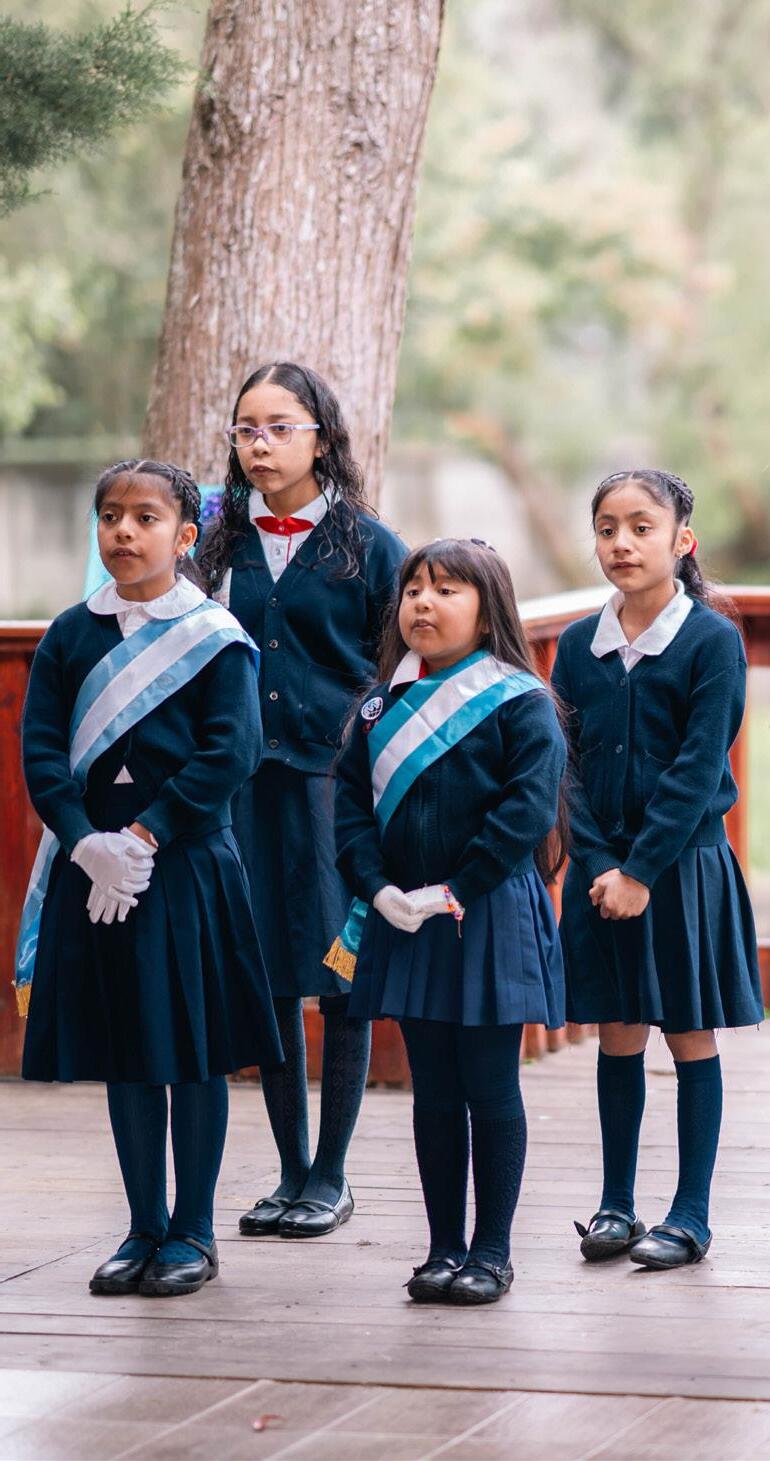
stronger collaboration with parents. This transparency has helped align expectations and reduce past misunderstandings regarding the scope and pace of the curriculum.
Through these initiatives, the school has strengthened its culture of care, communication, and partnership—creating a more supportive environment for students to thrive.
Colegio Mano Amiga “Hermano Pedro” has taken a thoughtful and strategic approach to improving communication between teachers and parents, a challenge that was affecting the school’s environment and reputation. Misunderstandings and emotional reactions from parents were often triggered by how teachers communicated feedback about students, sometimes using language that felt judgmental or harsh.
To address this, the school turned to the EduQuality framework and developed a formal feedback policy. This policy, inspired by guidance from “Pathways to Excellence”, provided clear expectations for how teachers should communicate student progress and areas for improvement. The leadership team created the policy document, trained all teachers on its use, and ensured everyone signed off in agreement.
Implementation included workshops, supervision, and ongoing reminders to
The school has strengthened its culture of care, communication, and partnership — creating a more supportive environment for students to thrive."
reinforce the new communication standards. Teachers were encouraged to use respectful, constructive language and to maintain professionalism in all interactions with families— even outside school grounds.
The results have been significant. Complaints from parents have decreased, and teachers report feeling more confident and supported in their interactions. The school now has a more unified, respectful approach to parent engagement, which has strengthened trust and improved the overall school climate.
This initiative reflects Mano Amiga’s commitment to continuous improvement, collaboration, and student-centered education—making it a model for other schools in the region
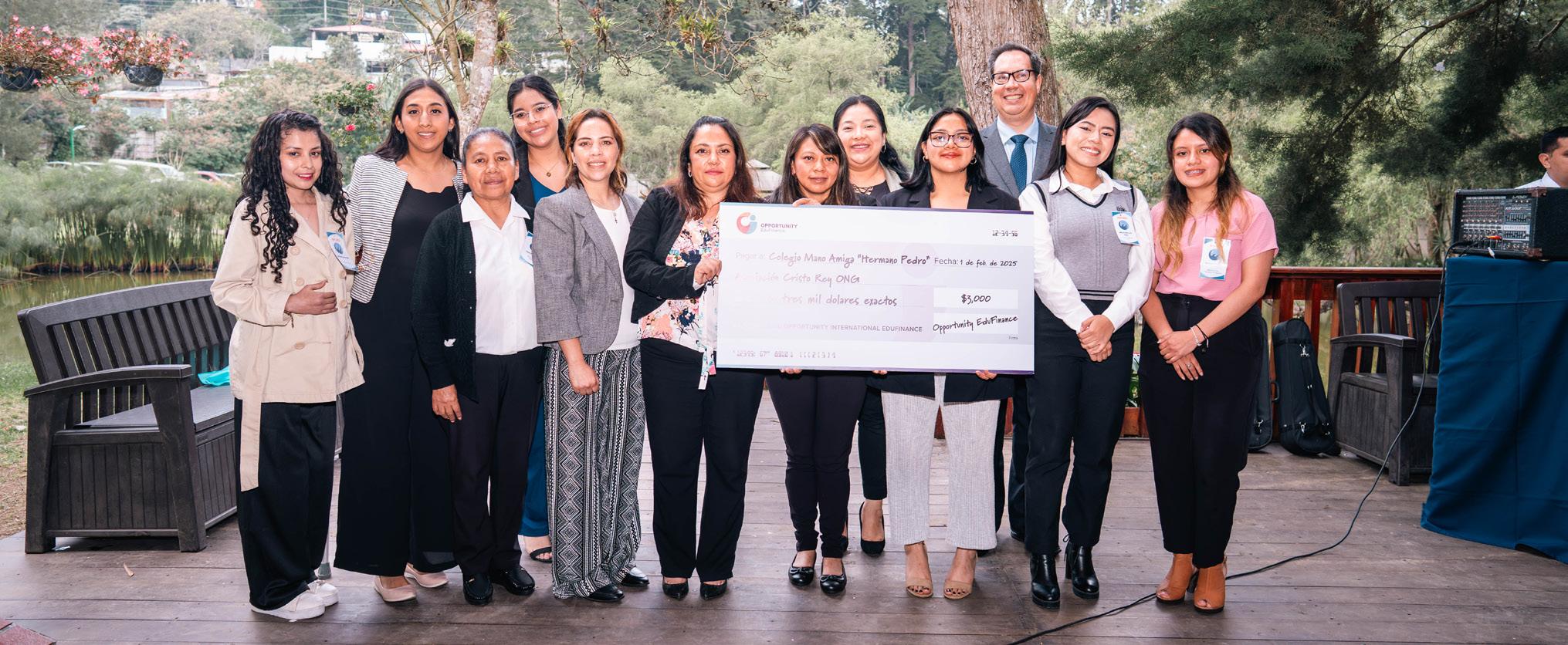
Centro de Estudios Evangélico Luz del Porvenir
Dominican Republic
Main Focus Area:
IMPROVING SCHOOL ENVIRONMENT
Colegio Evangélico Luz del Porvenir successfully addressed a critical challenge: maintaining a clean, safe, and healthy learning environment. The school faced persistent issues related to restroom hygiene, inadequate waste management, and limited awareness among students and families regarding environmental responsibility.
To tackle these concerns, the school launched the “Improving Our School Environment” initiative. This comprehensive project mobilized the entire educational community through the formation of student-led environmental clubs, organized cleanup campaigns, workshops on waste classification, and significant upgrades to the school’s sanitary infrastructure. These efforts were coordinated by a dedicated school committee and supported by psychologists, parents, and teachers, ensuring broadbased participation and ownership.
The initiative yielded measurable results, including a noticeable reduction in waste, increased environmental awareness, a more positive school climate, and greater student engagement.
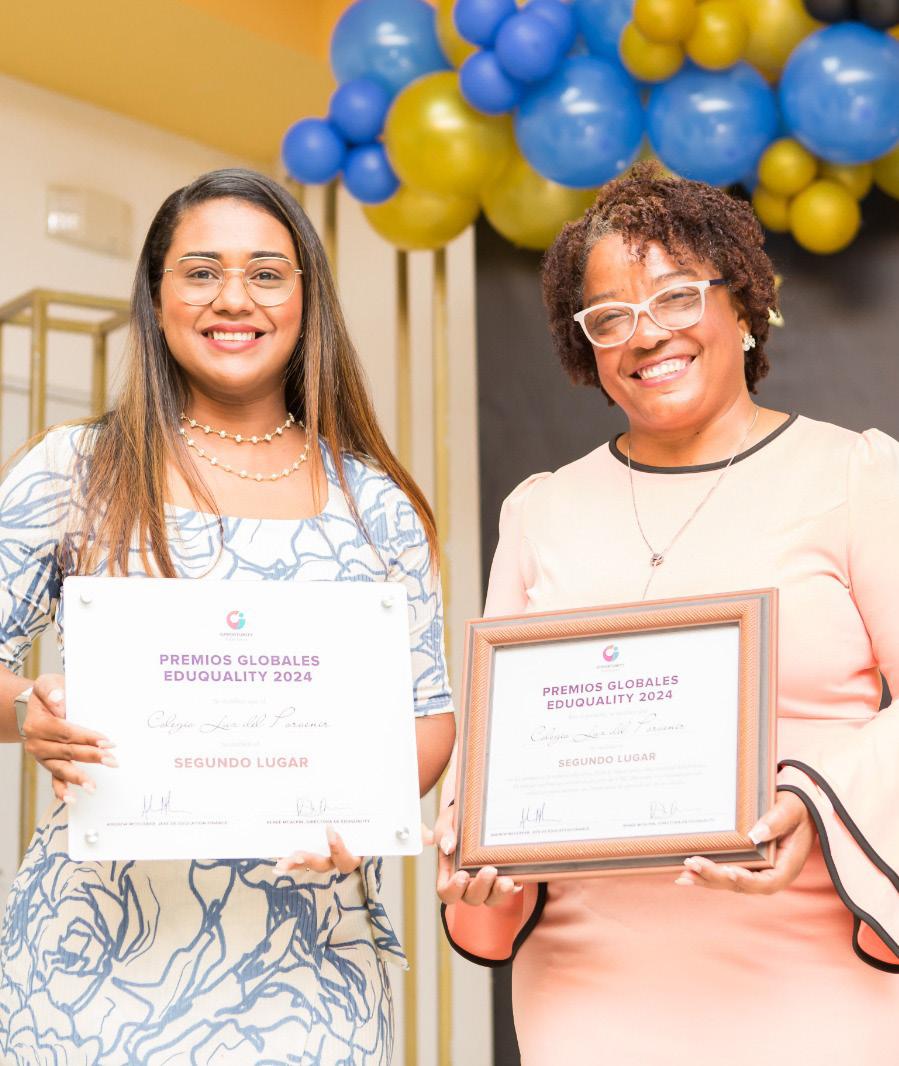
development, reinforcing the school’s commitment to gender equity and student well-being.
Together, these initiatives have extended their impact beyond the school grounds, positioning Colegio Evangélico Luz del Porvenir as a model of positive transformation and community leadership.
TOTAL
526
TOTAL BOYS
241
TOTAL GIRLS
285 Levels
Elementary, Middle School, High School SECOND
In parallel, the school introduced the “Let Me Be a Girl” initiative, aimed at empowering girls in the Villa Hermosa community. This program promotes inclusion and holistic
THIRD PRIZE
Crismond Academy Ghana
Main Focus Area:
LESSON PLANNING AND DELIVERY
Crismond Academy has made remarkable strides in improving how lessons are planned and delivered. The school previously faced several challenges, including limited teacher training, a lack of resources, resistance to new teaching methods, and time constraints. These issues, combined with evolving curriculum demands and a push toward student-centered learning, led to teacher frustration, disengaged students, and concerned parents.
To address this, the school introduced a comprehensive strategy. Teachers received handson training through workshops led by school leaders, supported by EduQuality resources. Regular professional development meetings and peer feedback sessions encouraged collaboration and continuous improvement. Teaching methods became more flexible, focusing on student participation and personalized instruction. Teachers were given the time and tools they needed, and a positive, supportive school culture was cultivated.
These changes were not only implemented within the school but also shared with other schools in the cluster through mentorship and collaboration. The Headteacher led the initiative, working closely with academic leaders, mentors, teachers, students, and parents. Everyone played a role in shaping and supporting the transformation.
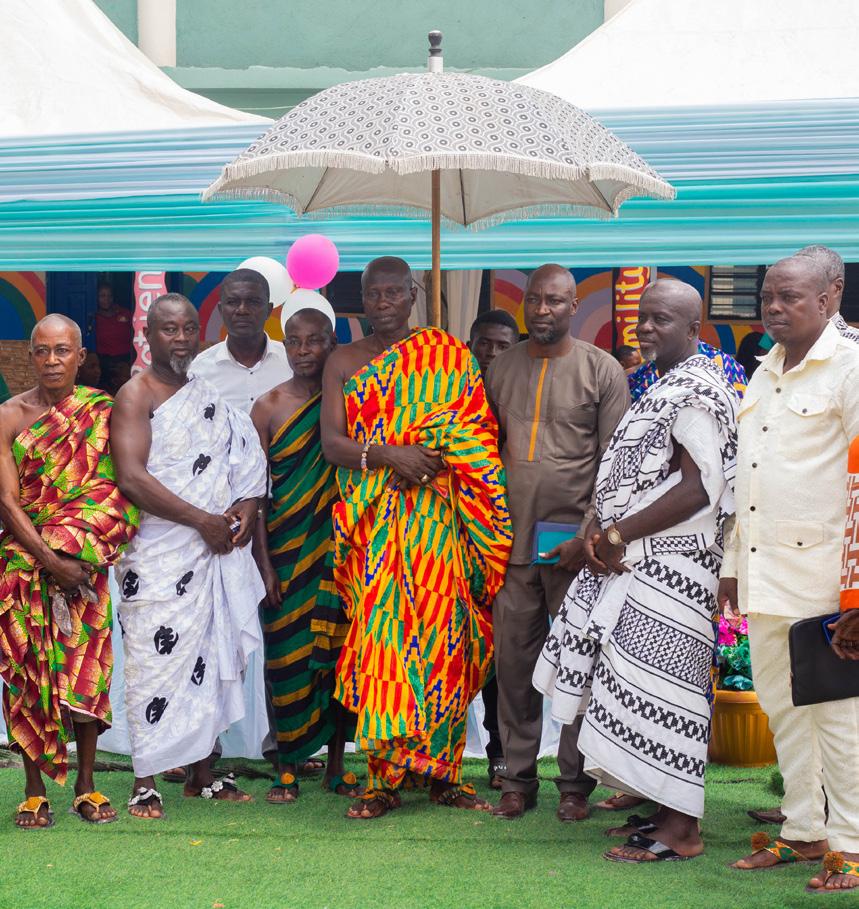
The results have been powerful. Students are more engaged and achieving better outcomes, teachers feel more motivated and supported, and the overall school environment has become more vibrant and collaborative.
TOTAL LEARNERS
1,354
TOTAL BOYS
763
TOTAL GIRLS
592 Levels
Pre-school, Primary, Junior High School
Honorary Mentions
Africa
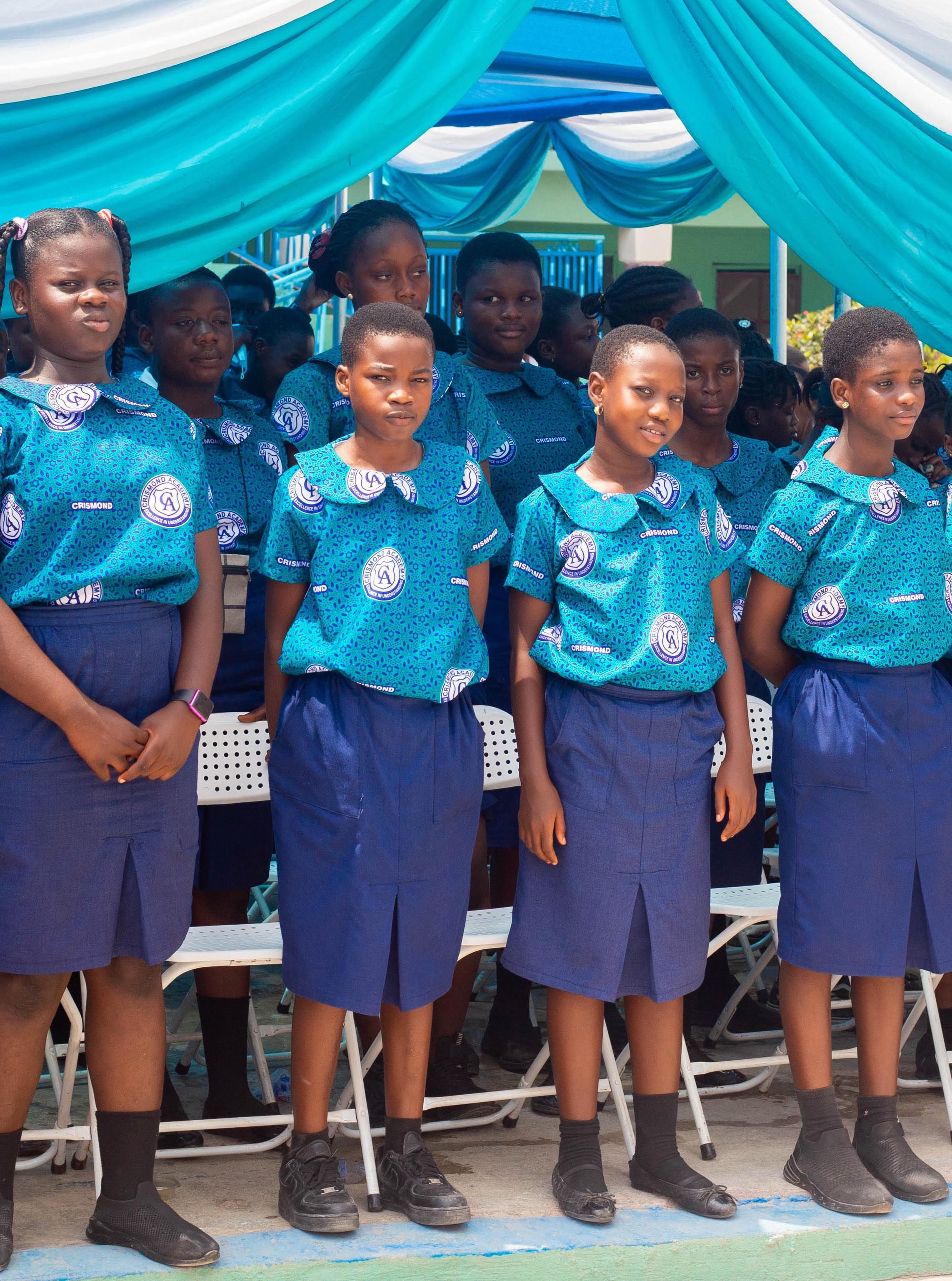
HONORARY MENTION THE CHANGE MAKER IN EDUCATION
Embu Kawa Academy Kenya
Main Focus Area:
LESSON PLANNING AND DELIVERY
Embu Kawa Academy has transformed its approach to teaching by focusing on better lesson planning and delivery. Like many schools in Kenya, it faced challenges adapting to the new Competency-Based Curriculum (CBC). Teachers struggled to meet the diverse needs of students, leading to disengagement and a drop in academic performance. Limited training and resources made it difficult to keep up with changing educational demands.
To overcome this, the school launched a comprehensive strategy centered on teacher development and creative lesson planning. With support from the EduQuality TMPD program, teachers received training in differentiated instruction and classroom management. They also began using lowcost, locally sourced materials—like recycled items for science lessons—to make learning more interactive. Peer coaching and lesson observations helped teachers grow together, while free online platforms expanded access to learning resources.
Implementation was hands-on and collaborative. Monthly workshops, peer feedback, and shared lesson planning became part of the school culture. Teachers worked across subjects to create engaging, crosscurricular lessons. These efforts were shared with other schools in the region, positioning Embu Kawa as a leader in innovation.
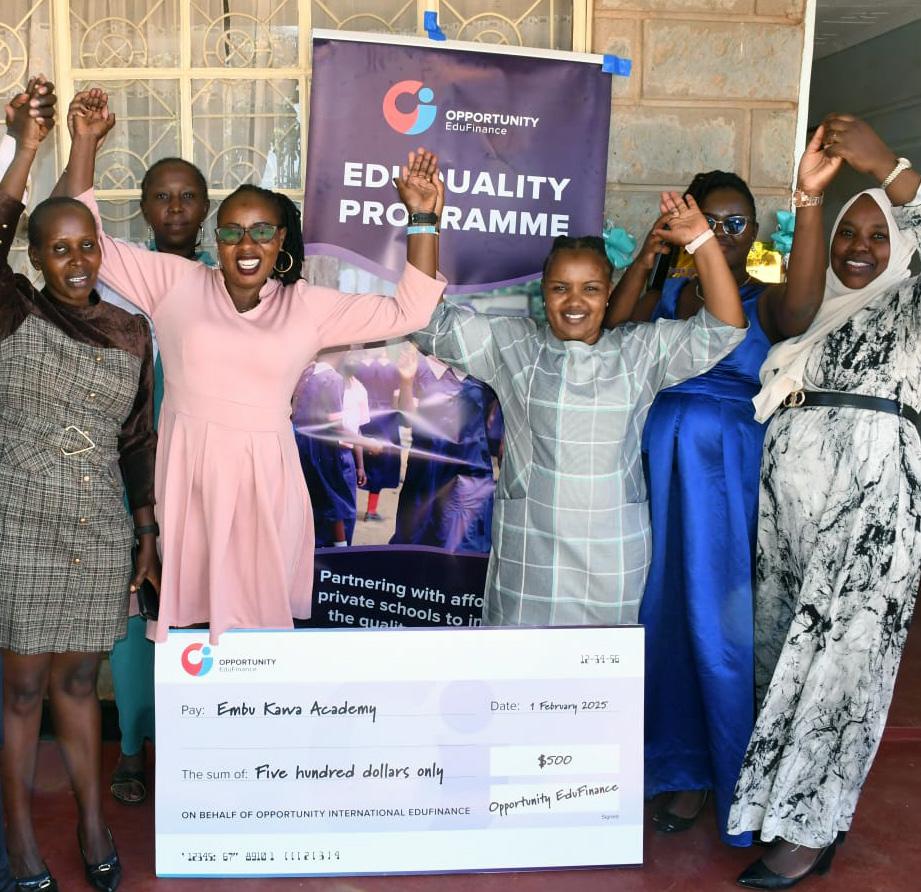
The results have been impressive. The school’s national exam scores rose by 33 points, with 100% of students graduating to high school and nearly a third joining top-tier institutions. Teacher confidence and retention soared, and student engagement increased through practical learning experiences like agriculture clubs and educational trips. Embu Kawa Academy’s success has inspired neighboring schools and strengthened its role as a model of excellence in the region.
TOTAL LEARNERS
160
TOTAL BOYS
85
TOTAL GIRLS
75 Levels
Pre-primary, Primary, Lower Secondary
HONORARY MENTION
THE COMMUNITY LEADER
Tujisaidie Community School Kenya
Main Focus Area:
PARENT & COMMUNITY ENGAGEMENT
Tujisaidie Community School, located in the heart of Nairobi’s informal settlements, has transformed its educational environment by focusing on parent and community engagement. Faced with challenges like low enrollment, poor attendance, and limited resources, the school recognized that meaningful change required the support of its entire community.
To address these issues, the school launched a series of impactful initiatives. A Parent-Teacher Association (PTA) was formed, leading to the creation of the Shining Joy Group, a parent-led community-based organization. This group introduced table banking, enabling parents to support each other financially while contributing to school fees and development projects. The PTA also organized fundraising events and played a key role in school governance.
The school built strong partnerships with local organizations like Tumaini African Foundation, which provided meals, sanitary towels, library access, and health services. Monthly forums and student-teacher meetings created open communication channels, while a student government body empowered learners to take part in school decisions.
These efforts led to remarkable results. National exam scores rose by 34%, and secondary school transition
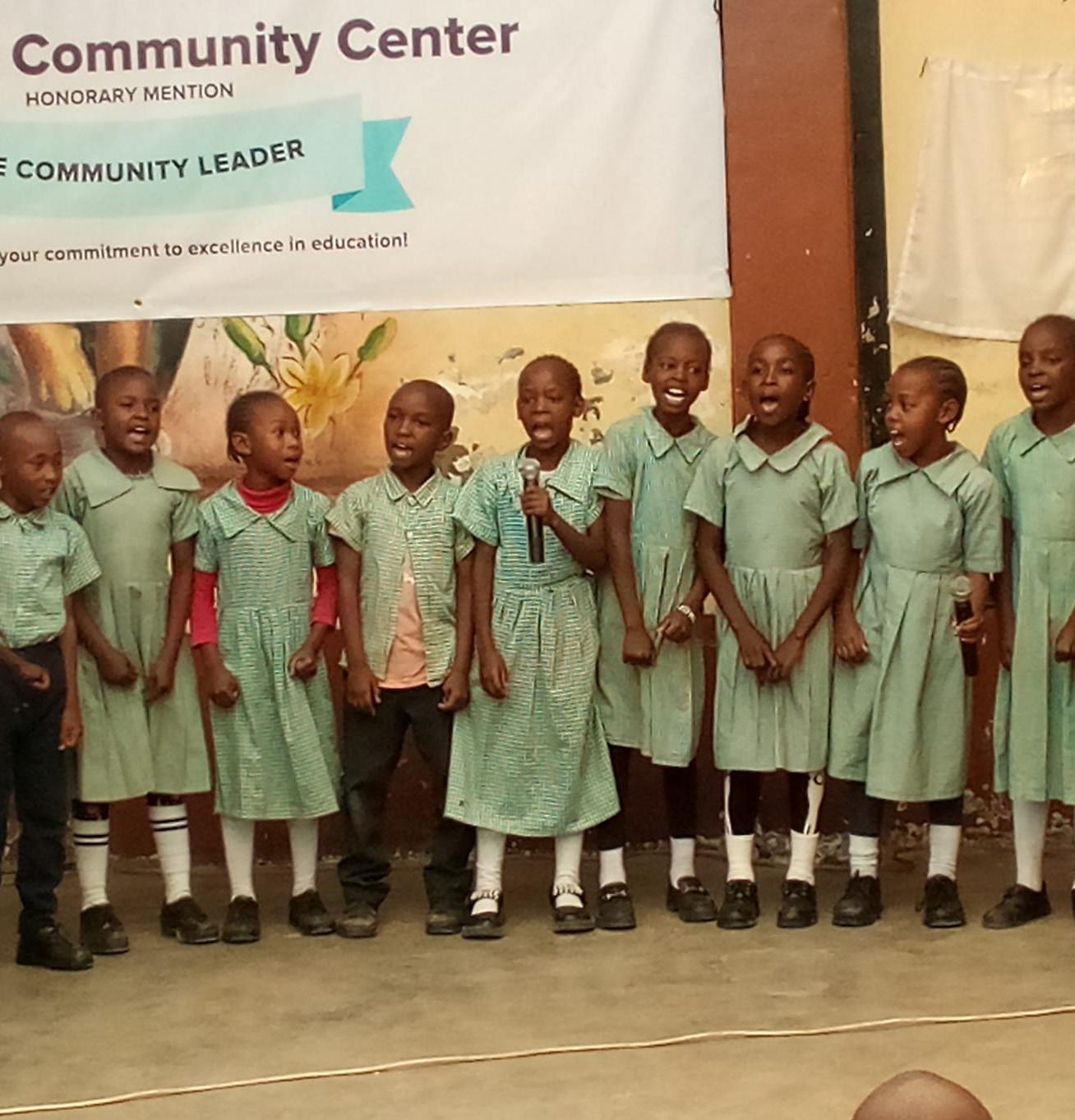
rates jumped from 53% to 89%. Enrollment more than doubled, with girls making up 60% of the student body. Teacher retention improved by 40%, and the school became a hub of community collaboration.
Tujisaidie’s story is one of resilience, innovation, and unity. By empowering parents, engaging local partners, and fostering student leadership, the school has become a beacon of hope and a model for community-driven education in Kenya.
Levels Pre-primary and Primary school
HONORARY MENTION
THE INNOVATOR IN EDUCATION
MetaMeta Roses Academy Kenya
Main Focus Area:
INCLUSION AND SPECIAL NEEDS EDUCATION
MetaMeta Roses Academy has become a beacon of hope in its marginalized Kenyan community by focusing on inclusion and special education needs. The school faced deep-rooted challenges—high dropout rates, gender-based barriers, and cultural practices like early marriage and FGM—that kept many children, especially girls, from completing their education.
To break this cycle, the school launched several transformative initiatives. A standout was the creation of a Hygiene Club, where girls were trained to make reusable sanitary towels. This not only addressed menstruation-related absenteeism but also empowered students with life skills and leadership opportunities. The school also built boarding facilities to protect girls from harmful practices and provide a safe, focused learning environment.
Community involvement was central to the school’s strategy. Through termly School Community Days, parents and local leaders contributed resources like firewood and milk, while participating in educational campaigns that challenged traditional norms. The school leader personally sponsored vulnerable students, and the entire community rallied around the mission to keep children in school.

The results have been powerful. Graduation rates for girls quadrupled in just one year, and enrollment reached near gender parity. Harmful practices are declining, and the school has become a model of how inclusive, community-driven education can transform lives.
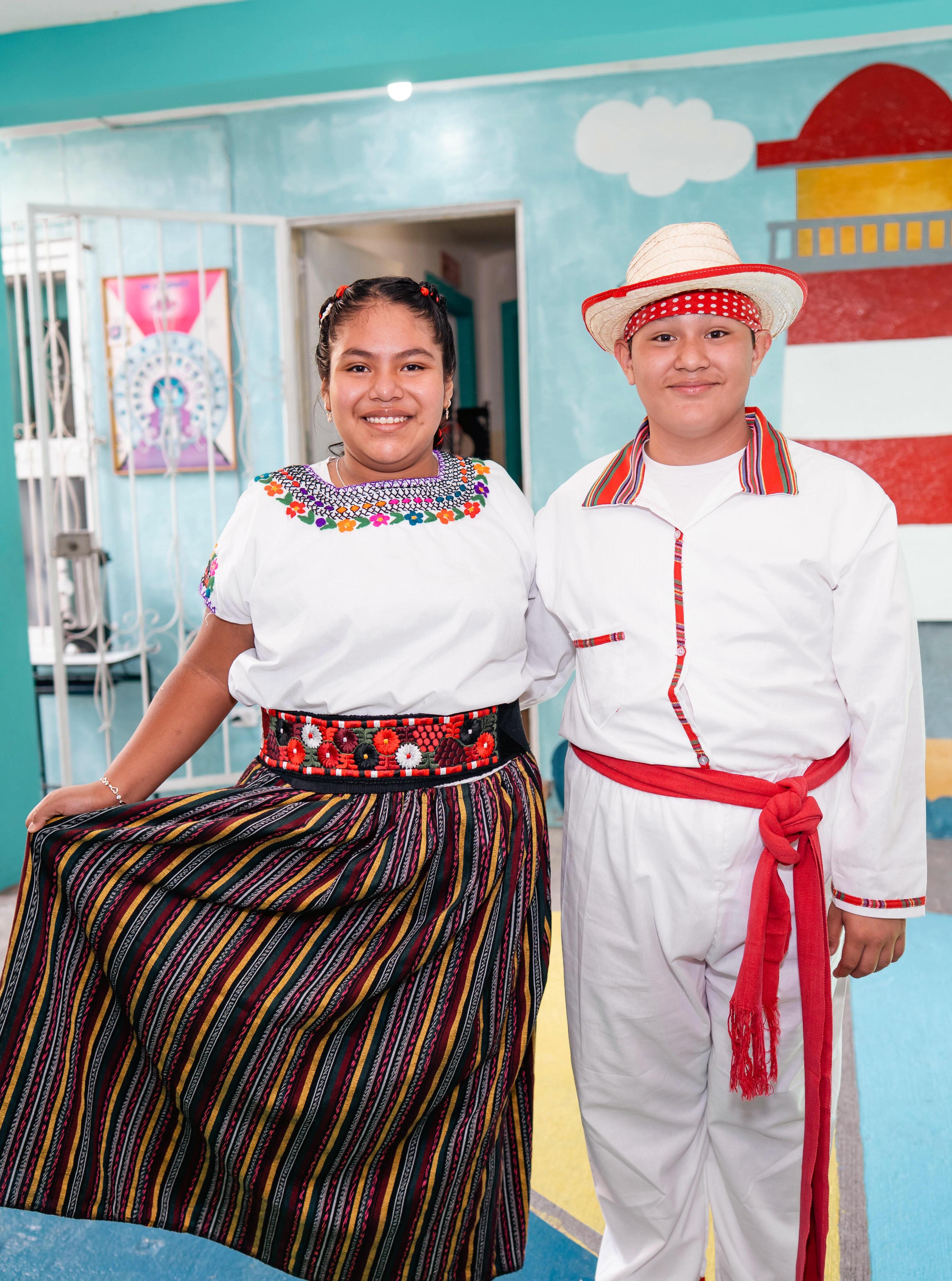
Honorary Mentions
Latin America and the Caribbean
HONORARY MENTION
THE CHANGE MAKER IN EDUCATION
Las Fresitas Educational Center
Dominican Republic
Main Focus Area:
INCLUSIVE EDUCATION
One of the key measures implemented is the recognition and respect for the individual differences of all students, allowing them to address their diverse needs more effectively, promoting an inclusive and personalized approach.
To reinforce this approach, programs have been developed that encourage the active participation of the community in school life, such as talks for parents focused on crucial issues such as the physical and emotional health of their children, services of the counseling and psychology unit at school (fundamental to identify and address emotional and academic needs of students). Another important aspect has been the linkage of the school with the community through various activities such as educational and cultural fairs, strengthening the sense of belonging and social responsibility in students, and health campaigns aimed especially at mothers.
These initiatives have had a significant impact on the quality of education and learning outcomes. Parents, feeling more involved and equipped to support their children, have reported improvements in family coexistence and student learning. The inclusion of the psychologist’s assistance has reduced behavioral problems and improved the school environment, which has facilitated more effective learning. Finally,
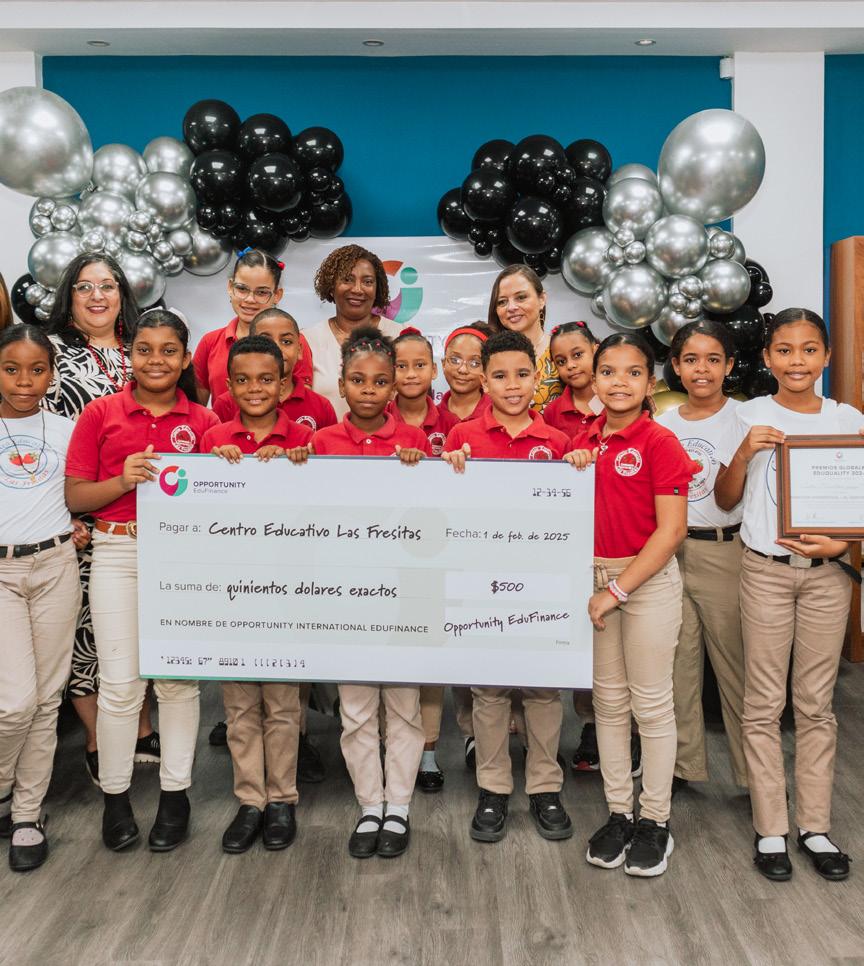
community activities have reinforced values such as collaboration, respect and responsibility, contributing to the integral formation of the students and strengthening the ties between the school and the community.
TOTAL LEARNERS
300
TOTAL BOYS
150
TOTAL GIRLS
150 Levels
Initial and Primary levels
HONORARY MENTION
THE INNOVATOR IN EDUCATION
Colegio Integral El Faro Guatemala
Main Focus Area:
SCHOOL DEVELOPMENT PLAN
Upon joining the EduQuality program, the school identified the absence of a formal Child Protection Policy as a critical gap, despite having informal practices in place since its founding. Recognizing the institutional and operational risks this posed, the leadership team committed to developing a structured policy, training staff, and securing institutional support. Initial attempts to obtain assistance from the Archdiocese of Guatemala and the Attorney General’s Office (PGN) were unsuccessful. However, the school eventually secured support from the Pedagogical Division of the Juvenile Court in Villa Nueva, contingent on coordination with the sector’s educational supervisor. Although the training was delayed by three months and promised certificates were never delivered, the school issued its own certificates, validated by the local supervisor, to ensure recognition of the training.
Despite these challenges, Colegio El Faro successfully organized a sector-wide child protection workshop through the Juvenile Court, benefiting not only its own staff but also educators from neighboring schools. The school used the CAE diagram from its institutional development plan to guide the creation of a formal Child Protection Policy,
TOTAL LEARNERS
105
TOTAL BOYS
55
TOTAL GIRLS
50 Levels
Pre-primary and Primary school
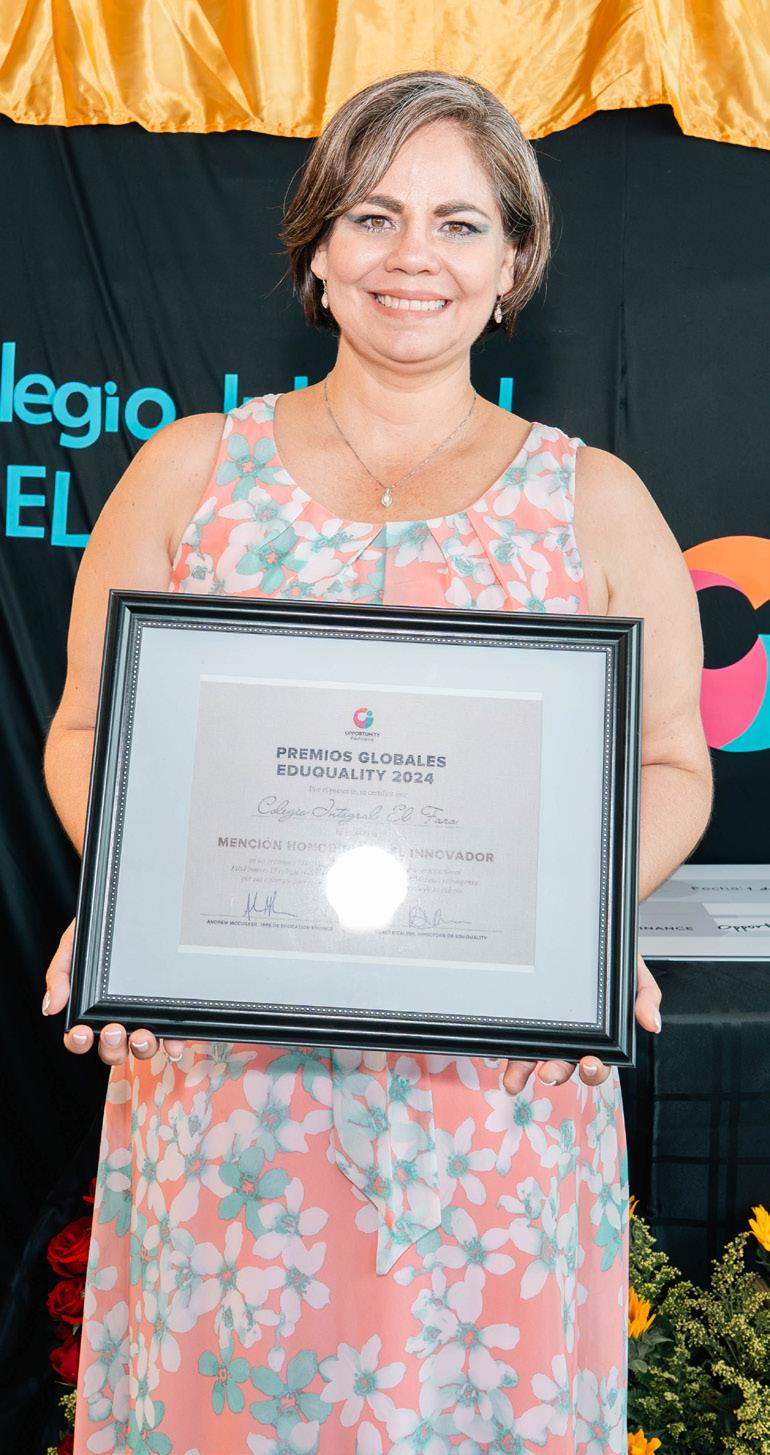
complete with clear intervention protocols now followed by the entire school community. The use of EduQuality’s Institutional Development Planning Guide helped translate goals into concrete actions, reinforcing alignment with the program’s principles.
To further strengthen its educational impact, El Faro established strategic partnerships. With EDUABA, an institute focused on inclusion, the school engaged in a mutual exchange: receiving training on inclusive education while offering pedagogical management consulting in return. Through a partnership with SENSOPLUS, a therapy clinic, students with neurodivergent conditions now receive in-school therapy at affordable rates, ensuring continuity of care and reducing scheduling conflicts for families. Additionally, collaboration with Universidad del Istmo (UNIS) has enabled co-financed scholarships for teacher professional development, supported by the university, the school, and in some cases, the teachers themselves.
Through a partnership with SENSOPLUS, a therapy clinic, students with neurodivergent conditions now receive inschool therapy at affordable rates, ensuring continuity of care and reducing scheduling conflicts for families."
Looking ahead, El Faro is preparing to launch a new initiative in collaboration with UNIS and the educational supervision office. This project aims to train two leaders from every school in their sector (01-15-05) in inclusive education practices. The initiative aligns with Sustainable Development Goal 4 (SDG4), aiming to build systemic capacity and promote inclusive, quality education beyond the boundaries of El Faro itself.
